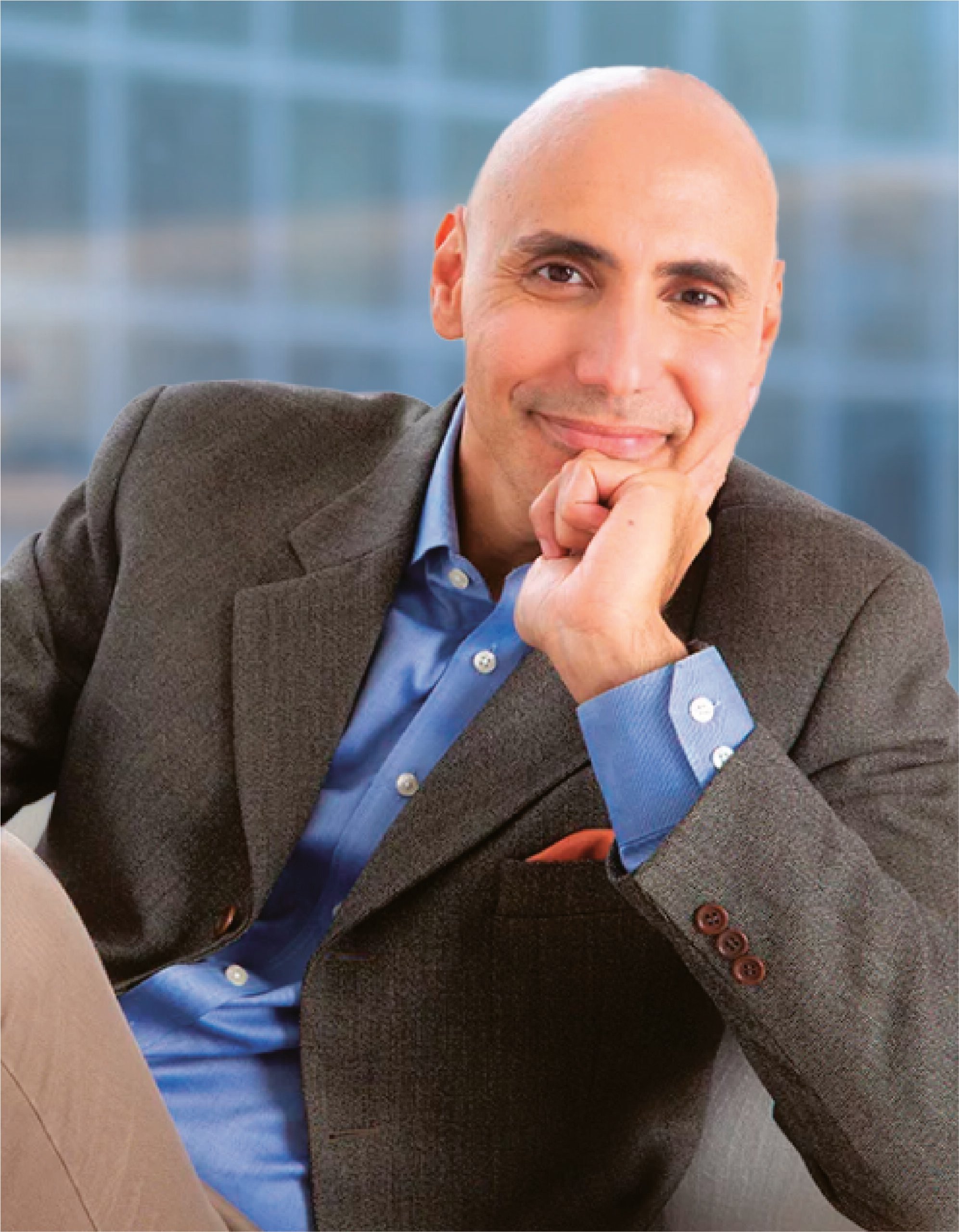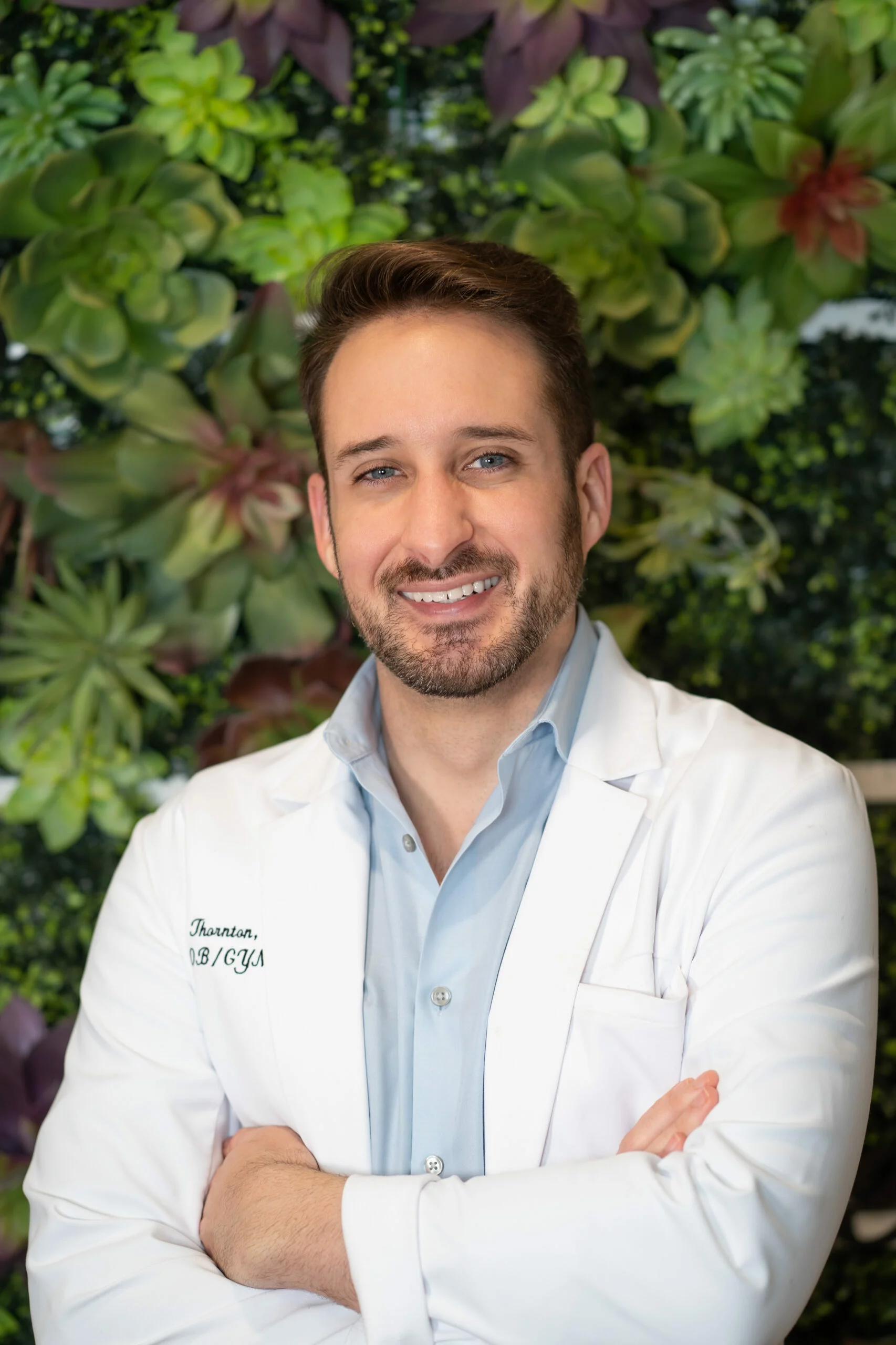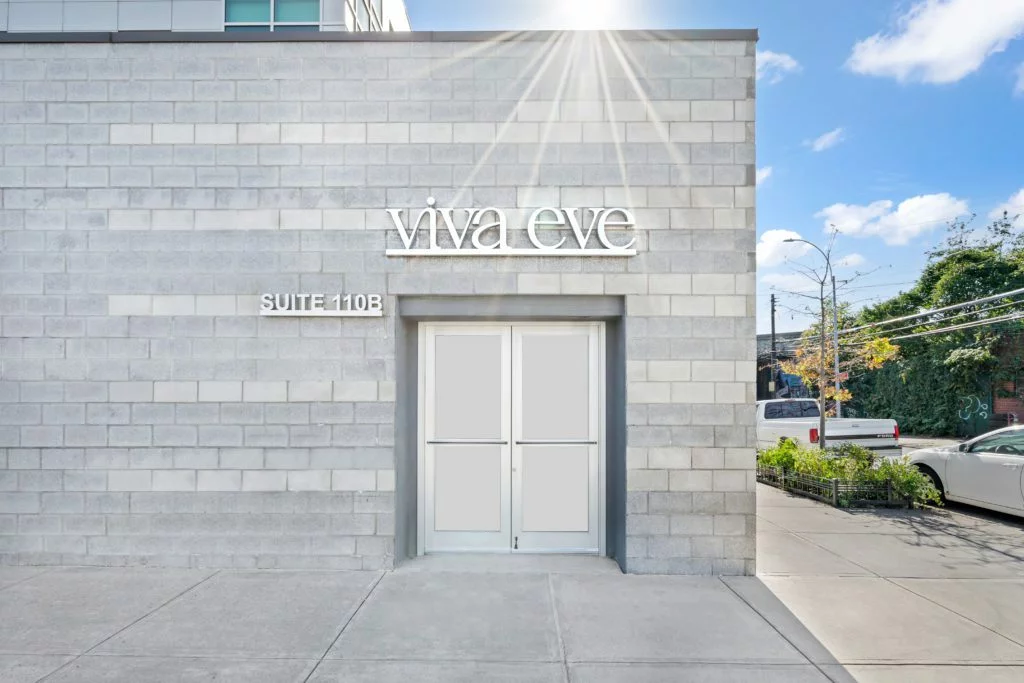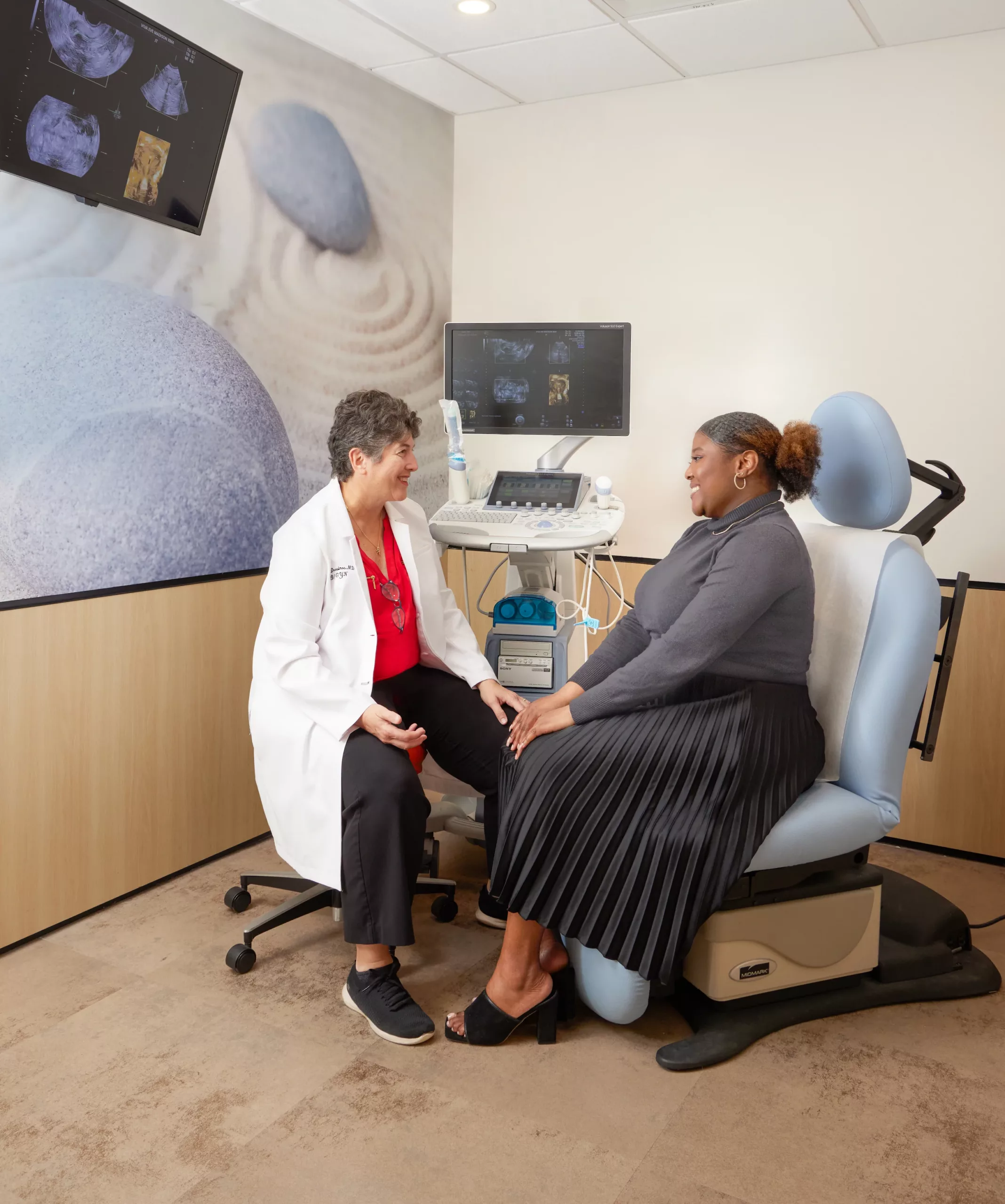A Better Approach to Treating Fibroids
You shouldn’t have to live with the pain, discomfort, and inconvenience of fibroid symptoms. You deserve clear answers and real solutions. That’s why Fibroid 360™ was designed to give you the knowledge, support, and treatment options you need to take control of your health. With more choices than anywhere else in NYC, you get a plan built around you—because your well-being comes first.
Book NowTreatment Options Offered By Your Fibroid Specialists
From nonsurgical uterine fibroid embolization (UFE) procedures to hysterectomies – all under one roof. Whichever treatment you choose, our providers work with you to educate and empower you to choose the best treatment option for yourself.
Uterine Fibroid Embolization
Uterine Fibroid Embolization (UFE) is a minimally invasive, nonsurgical procedure for the treatment of fibroids and adenomyosis that has been performed successfully for over two decades. It is an effective alternative to surgery and hormonal treatment, and those wishing to avoid a hysterectomy should discuss this option with their doctor.
Learn MoreHormone Treatment for Fibroids
Fibroid hormone treatment targets the hormones that regulate the menstrual cycle in order to shrink fibroids and slow their growth. When hormone production decreases, fibroids shrink and symptoms improve.
Learn MoreHysterectomy
While hysterectomy is the second most common surgery performed on reproductive-age women in the U.S., after cesarean section, It’s estimated that 20 percent of all hysterectomies are unnecessary because physicians are under-utilizing alternative treatments. Benign conditions, such as fibroids and adenomyosis, can be treated with less invasive methods, such as UFE.
Learn MoreMyomectomy Procedure Overview
A surgical procedure that is most often suggested to women of childbearing age who would like to get pregnant in the future is a myomectomy procedure. This technique is used to remove fibroids while leaving the uterus intact and helps preserve or improve the woman’s fertility.
Learn MoreFibroid Treatments
Fibroid treatments refer to medical or surgical interventions aimed at addressing uterine fibroids, non-cancerous growths that develop within or on the walls of the uterus.

What to Expect as a Patient
You’re supported by a team of experts with decades of experience and a dedicated Fibroid Navigator who guides you every step of the way, prioritizing your concerns and needs.
From your initial work-up and diagnosis to MRIs, treatment planning, and follow-up, you receive expert-level care throughout your entire fibroid journey.
With Viva Eve, you have access to more treatment options than anywhere else, giving you the knowledge and choices you need to take control of your health.
Your Fibroid 360° Journey
PROVIDER CONSULTATION
Meet with one of Viva Eve's Ob/Gyns for the initial consultation that will include an exam and a discussion of your medical history, lifestyle, and how your symptoms affect your daily life. This appointment includes a physical exam and a pelvic ultrasound to help our providers assess your condition.
MRI SCREENING
Undergo imaging (MRI) to confirm the exact size, number, and location of your fibroid(s). An MRI delivers a more detailed anatomic image and is the preferred method for characterizing fibroids before most procedures.
MEET THE SPECIALIST
Meet with the fibroid specialist to discuss the results of your screening tests and together decide on the best course of treatment that's right for you, your schedule, and health goals. Depending on the option you choose, the doctor who will be in charge of your treatment could be an interventional Radiologist, a highly trained gynecologic surgeon or a gynecologist.
ENDOMETRIAL BIOPSY
Endometrial sampling (biopsy) is done to rule out cancer or any other cell abnormalities before any fibroid procedure. During biopsy a small piece of tissue from the lining of the uterus (the endometrium) is removed for examination under a microscope.
PROCEDURE
Most of Viva Eve's fibroid patients who are eligible for UFE choose this minimally invasive and safe procedure. Viva Eve also offers a full range of other advanced minimally invasive, surgical and non-surgical treatments for fibroids.
FOLLOW UP
No matter which treatment option you choose, our physicians and nurses will follow-up with you closely post procedure to ensure you are healing well. You will be given exact instructions on when you should come and see your doctor.
Meet Your Fibroid Specialist NYC
Treating fibroids begins with finding the right team. From our caring front-desk staff to our empathetic providers and highly skilled fibroid specialist NYC, we strive to create a warm and welcoming experience for all of our patients.
Dr. James A. Gohar
Co-Founder and Ob/Gyn
Dr. James Gohar is an entrepreneur and practicing obstetrician and gynecologist with over 20 years of experience in the medical...
Learn MoreDr. Mahendra Sohan
Ob/Gyn
Dr Sohan is a board-certified physician with over 25 years of experience in the field of obstetrics and gynecology. He...
Learn MoreDr. Benjamin Thornton
Ob/Gyn
Dr Benjamin (Ben) Thornton is excited to join Viva Eve’s clinical team. Dr Thornton is an enthusiastic and thoughtful Ob/Gyn who...
Learn MoreAlexa Grigley, NP
Fibroid Navigator
Alexa Grigley is a board-certified Family Nurse Practitioner who brings her diverse clinical background and a wealth of experience to Viva Eve....
Learn MoreSydney Jacobs, NP
Nurse Practitioner
Sydney Jacobs is a warm and dedicated Ob/Gyn Nurse Practitioner who provides compassionate, personalized care to each patient. She earned...
Learn MoreOur Locations
Forest Hills, Queens
With 30+ years of history serving women in the Forest Hills area, Viva Eve Forest Hills is on a mission to empower women in the Queens community to live healthier lives.
108-16 63rd Road
Forest Hills, NY, 11375
Phone: 212.988.2111
View Location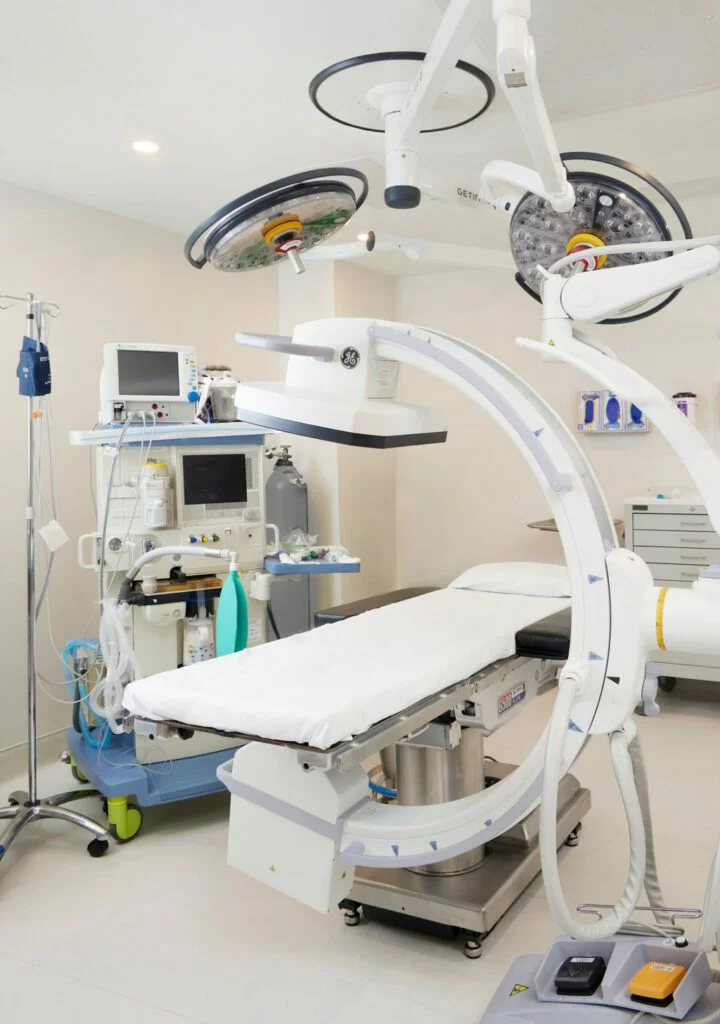
Our AAAASF-Certified Surgical Centers
- Expert Care: Viva Eve’s fibroid specialists perform UFE procedures in fully accredited operating rooms, meeting the highest safety standards set by AAAASF.
- State-of-the-Art Facilities: Whether at Viva Eve Astoria or Viva Eve Madison, you receive care in a modern outpatient facility equipped with the latest technology.
- Personalized Attention: Our highly trained medical staff is dedicated to providing the best level of care and a patient-centered experience.
- Same-Day, Minimally Invasive Treatment: Board-certified physicians deliver efficient, same-day surgical care in a comfortable and supportive environment.
- Specialized Expertise: Led by Dr. Mohammad Bilal, Director of Interventional Radiology, our team specializes in minimally invasive and surgical treatments for fibroids
Fibroid FAQs
Fibroids are noncancerous growths that develop in or around the uterus. There are different types of fibroid tumors, and they can be as tiny as a seed, as large as a melon, or any size in-between. They can cause a variety of symptoms ranging from severe cramps and abnormally heavy bleeding to pain during sex to constipation and incontinence.
All women of childbearing age are at risk for developing fibroids. However, there are a number of factors that make a woman more likely to develop fibroids, including: -Race: Black women are 3 times likelier to develop fibroids and are significantly more likely to experience severe symptoms -Earlier age of onset of menstruation – Women who started their period at a young age are more likely to have fibroids. -Obesity – Women who are overweight are 2-3 times more likely to develop fibroids. -Diet – Diets higher in saturated fat and meat have been linked to higher estrogen levels, which could lead to fibroids forming in and around the uterus. -Genetics/Family History – Women who have a family history of fibroids are 3 times more likely to develop fibroids. -Alcohol/Caffeine – Women who drink alcohol and/or higher levels of caffeine are at a higher risk of uterine fibroids. -Women who’ve never had children – The risk of fibroids is higher in women who’ve never given birth compared to women who have. -Age – Premenopausal women are 3-5 times more likely to develop fibroids.
Because they’re noncancerous, fibroids are usually not life-threatening. However, for women who suffer from fibroids, the symptoms may dramatically compromise their quality of life. Pain from severe cramping or during sex as well as discomfort and inconvenience from excessive bleeding, bladder pressure, etc., can have a debilitating effect on mood, emotions, and libido. So, while most fibroids aren’t life-threatening, many women find them to have a negative effect on their lifestyle.
Traditionally, doctors usually recommended that fibroids be treated by hysterectomy (removal of the uterus) or myomectomy (removal of the fibroids)—both major, invasive surgeries requiring hospitalization with long recovery times and other disadvantages, such as higher complication rates and potential organ loss. For over two decades now, minimally invasive UFE has been used to successfully treat fibroids and help women get back to their lives much more quickly. Know that even some physicians aren’t aware of the advantages of UFE over other options, but as the patient, you should get all the facts. And your doctor should support your learning about generally accepted, evidence-supported medical treatments in the context of your circumstances.
Fibroids may affect a woman’s ability to conceive for a number of reasons. Fibroids can create a physical barrier to pregnancy if they’re positioned in the uterus where the baby needs to be. Large fibroids may prevent a fetus from growing fully because of decreased room in the uterus. Fibroids blocking the cervix or fallopian tubes obstruct the journey or sperm of fertilized egg, preventing pregnancy from occurring.
Women with a family history of fibroids are at increased risk of developing them and are 3 times more likely to develop fibroids. Researchers believe that there may be a genetic component that relates to a woman’s susceptibility to developing fibroids. Some women develop fibroids without any family history, so women suspecting fibroids or experiencing symptoms should consult with a fibroid expert.
